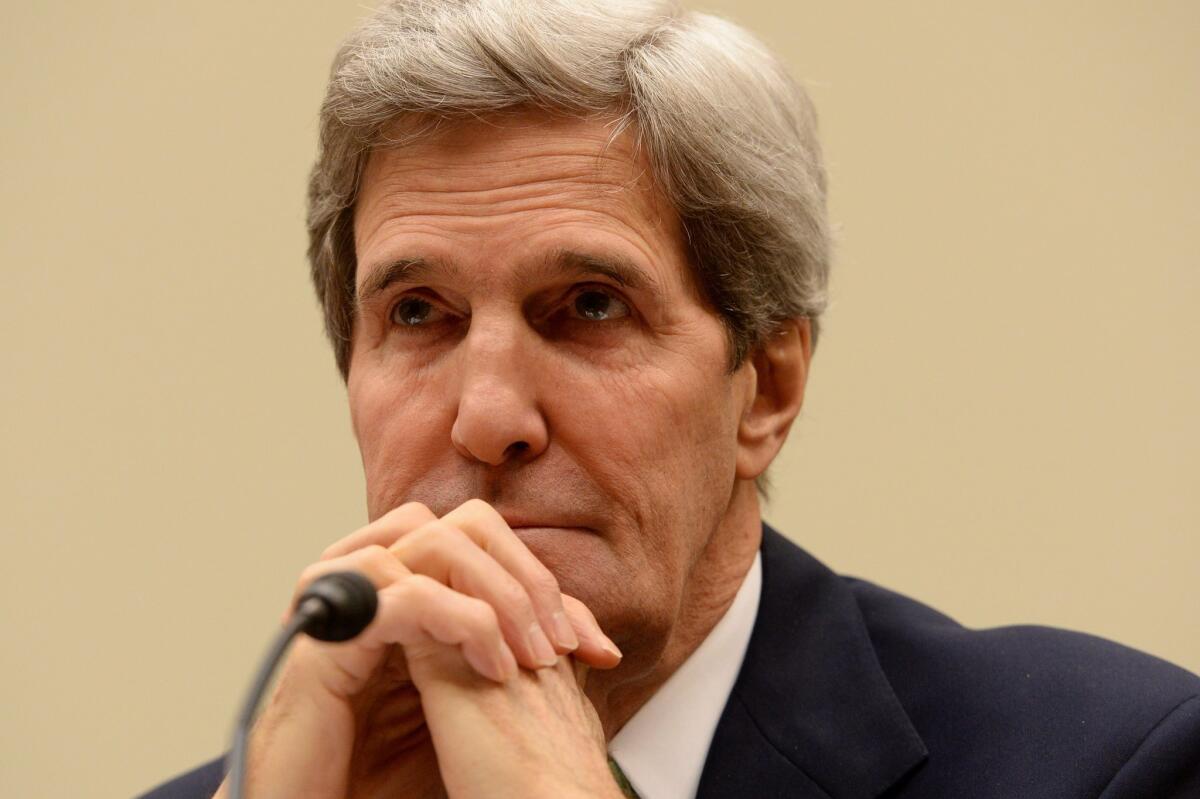New Iran sanctions? Not now.

Negotiating with Iran on a permanent agreement to ensure that it doesn’t develop nuclear weapons is challenging enough. But the Obama administration simultaneously must deal with members of Congress who are determined to impose new economic sanctions on the Islamic Republic that could jeopardize not only the final agreement but also the interim deal reached in Geneva last month, in which Iran agreed to suspend progress on its nuclear program.
In testimony Tuesday before the House Foreign Affairs Committee, Secretary of State John F. Kerry pleaded with Congress not to legislate new sanctions during “a very delicate diplomatic moment.” He’s absolutely right. Congress played a constructive role in approving the existing sanctions that put pressure on Iran to come to the negotiating table. But new sanctions legislation, which probably could be enacted only over a presidential veto, likely would have the opposite effect.
Even when Congress appropriately asserts a role in foreign policy, complaints will be heard from the executive branch about “535 secretaries of State.” But in this situation that criticism is apt. It is Kerry (along with diplomats from other nations) who has been negotiating with the Iranians and has a superior reading of Iranian intentions. Congress should defer to his conclusion that the approval of new sanctions now, even if they were timed to take effect after the six-month period covered by the interim agreement, would derail the talks.
YEAR IN REVIEW: Washington’s 5 biggest ‘fails’ of 2013
The interim agreement says that the Obama administration, “acting consistent with the respective roles of the president and the Congress, will refrain from imposing new nuclear-related sanctions.” That language could be read to say that the agreement could survive even if sanctions were enacted over a presidential veto. But there is no reason for Congress to test that hypothesis. (Iran’s foreign minister says that if new sanctions are imposed, “the entire deal is dead.”)
Some supporters of sanctions no doubt believe that inflicting further economic pain on Iran will make it more inclined to compromise. Others, however, would be happy if no deal were concluded, because they believe the best and only way to ensure that Iran doesn’t develop a nuclear weapon is through military action or regime change. The U.S. and its partners shouldn’t be willing to accept a deal that falls short of depriving Iran of a nuclear weapon. But as President Obama rightly put it when he announced the interim agreement, “I have a profound responsibility to try to resolve our differences peacefully, rather than rush toward conflict.” Congress should allow him and Kerry to get on with that job.
More to Read
A cure for the common opinion
Get thought-provoking perspectives with our weekly newsletter.
You may occasionally receive promotional content from the Los Angeles Times.






